Shandong Tianyu Natural Museum
Shandong Tianyu Natural Museum
Shandong Tianyu Natural Museum is locatedin the western section of Lianhuashan Road, Pingyi County, Linyi City, ShandongProvince. It is the largest natural geological museum and the largest dinosaurmuseum in the world.
The museum, with a total investment of 400million yuan, was completed and opened in September 2004, with a constructionarea of 32,000 square meters and a display area of 28,000 square meters. TheMuseum has one scientific research museum, one 4D dynamic cinema, 28 exhibitionhalls and more than 390,000 exhibits. More than 1200 dinosaurs and more than2200 bird fossils are preserved in the museum. The library publishes more than30 scientific achievements in scientific journals such as Nature and Science.
Since its establishment, Shandong TianyuNatural Museum has been named "Shandong Science Popularization EducationBase", "Shandong Province Care for the Next Generation of SciencePopularization Education Base", "China Paleontology SciencePopularization Education Place" and "National AAAA Tourist ScenicArea".
Historical evolution
Shandong Tianyu Natural Museum is locatedin Pingyi County, Shandong Province. It was built and opened in September 2004.In 2007, it was awarded National AAAA Tourist Scenic Spot. The building area is32,000 square meters.
Collection
There are 1106 complete individual dinosaurfossils in the museum, including Golden Mountain Dragon 8 meters long and 6meters high, lovely parrot-billed dragon in shape, and Avian Sinosaurus, therepresentative of the initial stage of evolution from dinosaurs to flyingbirds.
The Tianyu Museum of Natural History hasbeen recognized as the "largest Dinosaur Museum in the world" by theBritish headquarters of Guinness World Records for its 1106 complete individualdinosaur fossils. As of August 2010, the museum has won the "GuinnessPrize of the World" for six collections, known as "a book depictingnatural life". The Tianyu Natural Museum is considered to be the largestnatural geological museum in the world.
The exhibits are mainly mineral specimensand paleontological fossils. In the exhibition hall of 9 mineral specimens,there are thousands of rare specimens from all over the world. In 2006, it wasawarded the Top Ten "Xinjiang Tourmaline" by the European Journal ofMineral and Gemstone Specimens, which integrates the essence of heaven andearth and is glorious and world-class. The silicified wood produced in Qitai,Xinjiang, is 38 meters long and ranks the highest in the world. It was recordedin the "Guinness" world record in September 2007. The Amethyst caveproduced in Uruguay is 3.3 meters high and weighs 3.7 tons, which is thehighest in the world. The 3.9-ton crystal single crystal in the East China Seaof Jiangsu Province is the largest in Asia; the 338.6-carat diamond is thelargest super-large diamond ever produced in China, which is 179.82 caratsheavier than the most "Changlin diamond" (158.78 carats) in China. Ithas diamond luster and shiny treasure. In the largest gypsum SpecimenExhibition Hall in the world, all kinds of diamonds are transparent. Theplaster is crystal clear and dazzling; entering the world's largest stalactiteexhibition hall is like entering a dream world, which makes people daydreaminfinitely.
Among the six exhibition halls of GuanlingBiota in Guizhou, nearly 10,000 fossil specimens of various ichthyosaurs,Guizhou Dragons, Haydrosaurus, Hailong and Lilium are found in the Triassicstrata, ranging from large ichthyosaurs up to 18 meters long to smallichthyosaurs less than half a meter long, showing the diversity and complexityof Triassic organisms.
Of the seven exhibition halls of JeholBiota, there are nearly 200 parrot-billed dinosaur fossils in the dinosaurexhibition hall. Among them, the gastrolith preserved in the stomach of AvianDragon fossil and the fossil formed by food at that time are of greatornamental and scientific value. "Ten Thousand Fish Hall" shows morethan 100,000 different kinds of fish fossils more than 120 million years ago,which is one of the best in the world. Thousands of feathered dinosaur and birdfossils rarely seen in other museums around the world provide a solid physicalexample for people to study the extinction of dinosaurs and the origin ofbirds.
The Museum has a collection of nearly 1000deer and rhinoceros fossils from the Shanwang Biota strata, which are rare inother museums. They can be seen here in various carnivorous fossils, insectsand plant fossils. Seeing these fossils is like reading an endless "tenthousand volumes of books", which makes people linger and forget toreturn.
Main attractions
Dinosaur Hall
The hall mainly displays the fossils ofMesozoic animal dinosaurs. Dinosaurs appeared in Triassic, flourished inJurassic and extincted in Cretaceous. Because of the warm and humid climate ofthe Mesozoic, the four seasons are like spring, and plants grow everywhere, itis very suitable for reptiles to survive, especially all kinds of dinosaurs.They multiply and differentiate rapidly, spread all over the world, and havethousands of species. They controlled the three major habitats of the time:sea, land and air, and dominated the earth for 150 million years. Dinosaurs areone of the most successful animal species on earth.
The Museum has a collection of 8-meter-longand 6-meter-high golden mountain dragons, lovely parrot-billed dinosaurs, andthe first representative of the evolution from dinosaurs to flying birds, theSinosaurus, the earliest beaked bird in the world, the sage Confucius bird. Inaddition, thousands of dinosaur egg fossils with different shapes weredisplayed to the audience. The display of various dinosaur fossils is of immeasurablesignificance not only to the study of the origin of birds, but also to thestudy of the physiology, ecology and evolution of dinosaurs.
Butterfly Herbarium
The butterflies on display here includebutterflies growing in high mountains and cold areas of 2500-5000 meters abovesea level, such as Tianshan Mountain in Xinjiang and Changbai Mountain inNortheast China. Their wings are as thin as silk. In addition, the preciousbutterfly species from Southeast Asia, Japan, Malaysia, Thailand and so on werealso exhibited, including the mimetic insect dead-leaf butterfly,purple-spotted ring butterfly, Cuifeng butterfly, Bawang butterfly. The vividand colorful butterflies are like colorful flowers, which bring you to thebeautiful nature.
Practical information
Ticket information
Ticket price: 80 yuan
Preferential policies:
A. Ticket-free policy: the height ofchildren is less than 1.2 meters free; 70 (including) elderly people over theage of one year are exempted with valid certificates, active servicemen withactive service officer certificates, disabled persons with disabilities,journalists with valid certificates.
B. Preferential policies: children's height1.2 (including) - 1.4 (including) meters to buy children's tickets in scenicspots (can be booked online), 60 (including) - 69 (including) one-year-oldpeople with valid certificates to buy preferential tickets in scenic spots (theabove preferential policies, need to buy in the scenic spots on their own).
3. Warm tips:
(1) Additional payment items: 3-D movies.
(2) Tickets are valid on the day ofdeparture. You need to enter the park and buy tickets again.
(3) In order to ensure ticket collectionand admission smoothly, please fill in the real name, mobile phone number andother information when booking.
Opening Hours
April-October 08:00-17:00
November-March 08:00-16:00
Traffic Information
Self-driving:
Linyi-Scenic Spot: Beijing-ShanghaiExpressway-Rilan Expressway-Rilan Expressway-58.0 km along Rilan Expressway,leaving Pingyi/Zaozhuang Exit and entering PingyiInterchange-S240-G327-S241-Lianhuashan Road-Terminal
Address: Pingyi County, Linyi City,Shandong Province
world record
The largest dinosaur museum: Tianyu NaturalMuseum in Shandong Province was opened in 2004. Its building area is 32,000square meters and its exhibition area is 28,000 square meters. It contains morethan 1,200 dinosaurs and 2,200 bird fossils. It is the largest dinosaur museumin the world. (Guinness)
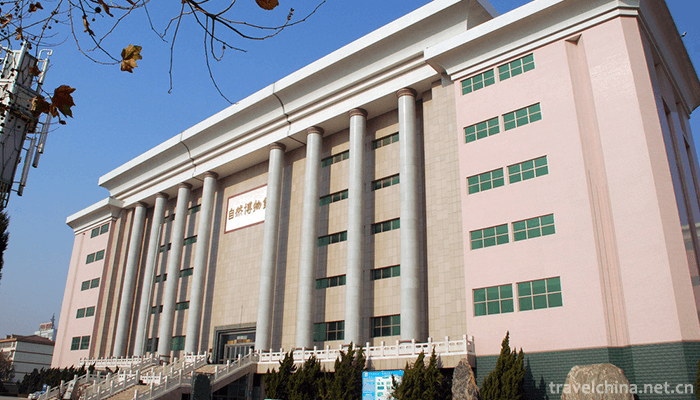


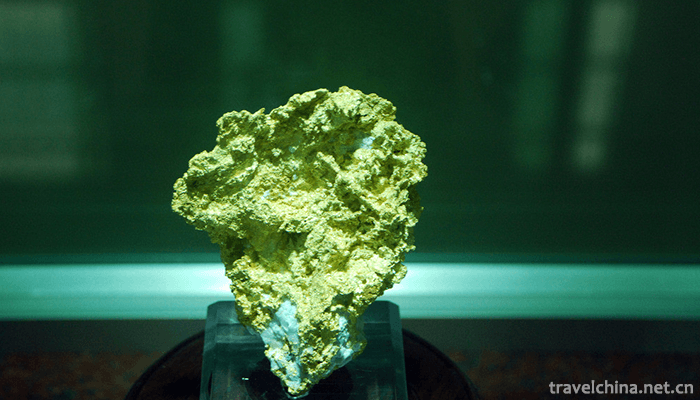
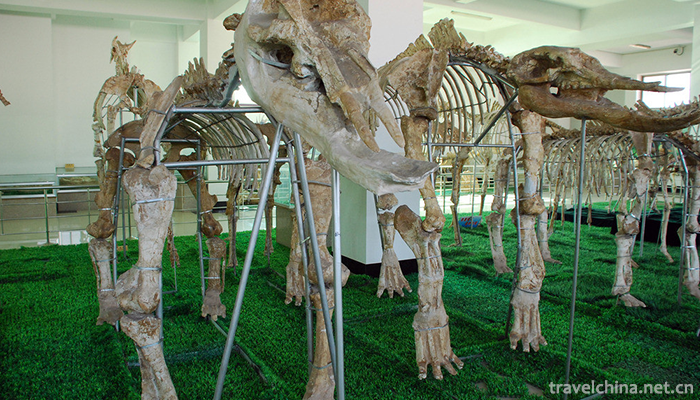
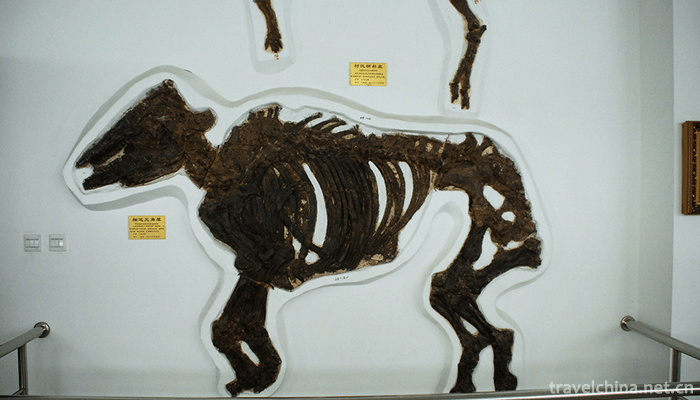
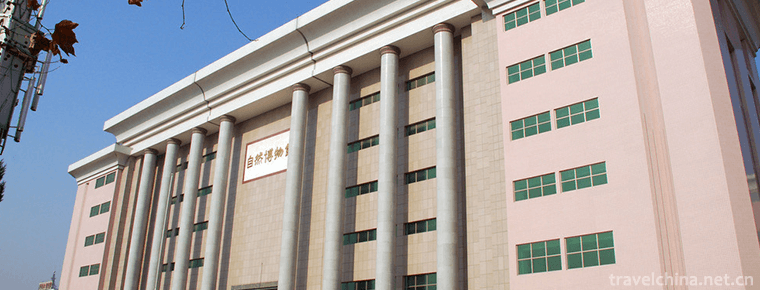
I am a retired Micropaleontologist and would like to make a trip to China specifically to see the excellent collection of Jehol Biota feathered dinosaurs and Mesozoic birds at the Shondong Tianyu Museum of Natural History. What would be the recommended way to travel to the museum from Beijing? Being unfamiliar with your public transportation system, road system, or language, the simplest way to get there would be the best. Would you know if there are car service in Beijing which may be hired for the ride?
Thank you very much.
There are three options for you to go from Beijing:
1. Beijing car rental, there will be car rental services at the airport
2. Take a high-speed train to Pingyi County, which costs about $15
3. Fly to Jinan, then travel from Jinan to Pingyi after the disaster
If you arrive in Beijing, volunteers or passersby at the airport, bus station, and train station will be happy to help you. never mind. If you have any other questions, you can send me an email to consult: sendtous@qq.com
-
1.The daxiangguo Temple
Daxiangguo Temple, formerly known as Jianguo Temple, is located in the western section of Kaifeng Freedom Road. It is a famous Buddhist temple in China. It was founded in Tianbao, Northern Qi Dynasty
Time 2019-01-07 -
2.Eight treasures quail
Babao quail is a dish. Its main ingredient is pure quail, etc. Its ingredients are purple quail, lotus seed, etc. Its seasoning is peanut oil, salt, soy sauce and so on. It is made by deep-frying.
Time 2019-03-25 -
3.Dang Tu folk songs
Dangtu Folk Song is one of the national intangible cultural heritages of the local traditional music in Ma'anshan City, Anhui Province.
Time 2019-04-25 -
4.Flower Drum Opera
Huagu opera, a kind of local opera in China, has the most identical names in the national local opera, usually referring to Hunan Huagu opera. Hubei, Anhui, Jiangxi, Henan, Shaanxi and other
Time 2019-05-04 -
5.Mongolian Humai
Humai, also known as laryngeal singing, double singing, multi-voice singing or Haolinchao, is a singing method of many ethnic groups around Altai Mountains, not unique to the Mongolian people.
Time 2019-06-03 -
6.Mira Gahei Mile La Ga Hei
Mira Gahei, Dongxiang folk tale. Also known as "Moonlight Mirror". Among the Dongxiang people, there are also poem-style stories of "Mira'er Hei", which are intermingled in rhyme a
Time 2019-06-04 -
7.Qinhuai Lantern Festival
Qinhuai Lantern Festival, also known as Jinling Lantern Festival and Confucius Temple Lantern Festival, is a popular folk cultural activity in Nanjing. It is mainly held from Spring Festival to Lanter
Time 2019-06-10 -
8.Former residence of Wu Yuzhang
Wu Yuzhang's former residence is located in group 6, caijiayan village, Shuangshi Town, Rong County, Zigong City, Sichuan Province. It is 14km away from the county seat and 32km away from Zigong City.
Time 2020-10-15 -
9.Luoji Mountain Scenic Spot
Luoji Mountain scenic area is located in Puge County, Sichuan Province, with a total area of 2400 square kilometers, of which the main scenic area is 1083 square kilometers, and the main peak is 4359 meters above sea level.
Time 2020-10-16 -
10.Chinese Qiang Museum
Qiang museum is a local ethnic Museum, located in the south of Qiangxing street in Maoxian county. It was officially opened in 1988 when the Qiang traditional festival "Qiang calendar year". It is the only Qiang Museum in China.
Time 2020-11-06 -
11.Chengdu Giant Panda Base tourist service
The tourist center is located 40 meters to the left of the entrance door of the scenic area (first floor of the Giant Panda Museum), with a building area of more than 400 square meters.
Time 2020-12-13 -
12.Neijiang medical and health
By the end of 2019, there are 3303 medical and health institutions in Neijiang, including 76 hospitals (56 private hospitals) and 3200 primary medical and health institutions. There are 25900 beds in medical and health institutions and 21100 health technical personnel,
Time 2020-12-16